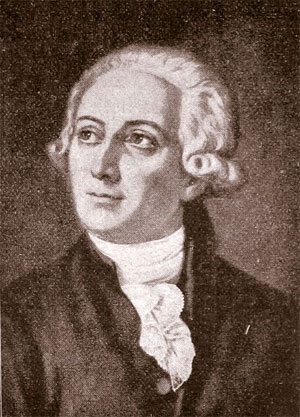
Source: Antoine Lavoisier, Wikimedia Commons

Source: Antoine Lavoisier, Wikimedia Commons
During the late 18th century, Antoine Lavoisier, a French scientist who is known as the father of modern chemistry, developed the law of conservation of mass. This law states that in a chemical reaction, matter can neither be created nor destroyed. Therefore, the mass of the products in the reaction must equal the mass of the reactants in a reaction.
![]() Watch this video to see how the conservation of mass relates to chemical equations.
Watch this video to see how the conservation of mass relates to chemical equations.
Source: Law of Conservation of Mass, kossihiskandarsjah, YouTube
According to the law of conservation of mass, the number of atoms for each element in the products must equal the number of atoms for each element in the reactants. When there are an equal number of atoms for each element in the product and the reactants, the equation is balanced.